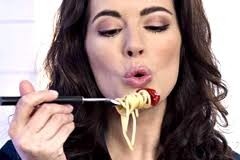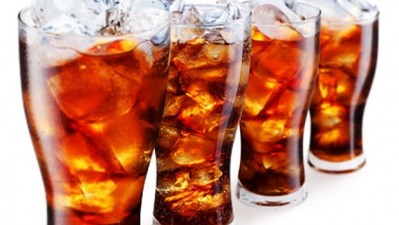Ready meals ‘healthier’ than TV chefs’ recipes: Newcastle Uni

The researchers revealed that some ready meals from Asda, Sainsbury and Tesco contained fewer calories and less fat, saturated fat and sugar but more salt than recipes from leading celebrity chefs Jamie Oliver, Nigella Lawson, Lorraine Pascale and Hugh Fearnley-Whittingstall.
Their study, published in the British Medical Journal, concluded: “Recipes devised by popular television chefs contained significantly more energy, protein, fat, and saturated fat and less fibre per portion than ready meals.
“Most cookery books do not provide nutritional information on recipes, which could help to inform consumers.”
‘Less healthy’
The meals featured in the chef’s books were, on average, less healthy and “more likely to achieve red traffic light labels”, said the researchers.
The study compared 100 main meals from best-selling cookery books with 100 own-label supermarket ready meals, selected at random. The meals’ calories, fat, saturated fat, sugar and salt content were then compared with nutritional guidelines from the World Health Organisation (WHO).
Professor Martin White, from Newcastle University’s Institute of Health and Society, said neither the ready meals nor the celebrity recipes met national or international guidelines for a balanced diet.
But the TV chefs’ recipes would be more likely to merit the red traffic light warning symbol under the Food Standards Agency criteria.
Traffic light warning system
The researchers recommended the traffic light warning scheme should be applied to TV chefs. The red, amber and green symbols should be applied to celebrity chefs’ recipes, TV programmes, cook books and websites.
Also, they noted that while a 9pm TV watershed has been recommended for the advertising of unhealthy food, nothing similar has been suggested for TV chefs.
A spokesman for Jamie Oliver told the BBC: “We welcome any research which raises debate on these issues.
“We would regard the key issue to be food education so that people are aware of which foods are for every day and which are treats to be enjoyed occasionally.”
The researchers said they hoped the celebrity chefs would respond to the research by re-examining the nutritional value of their recipes.
White said food manufacturers had reformulated their ready meals after criticism of their nutritional values. “The advent of beter nutritional labelling and things like traffic lights has drawn attention to the content of ready-prepared food,” he said.
But only 4% of the ready meals studied were below the WHO salt threshold.
Brought to book – celebrity cookbooks reviewed
- Jamie Oliver ‒ 30 Minute Meals and the Ministry of Food
- Nigella Lawson ‒ Kitchen
- Hugh Fearnley-Whittingstall ‒ River Cottage Everday
- Lorraine Pascale – Baking Made Easy















